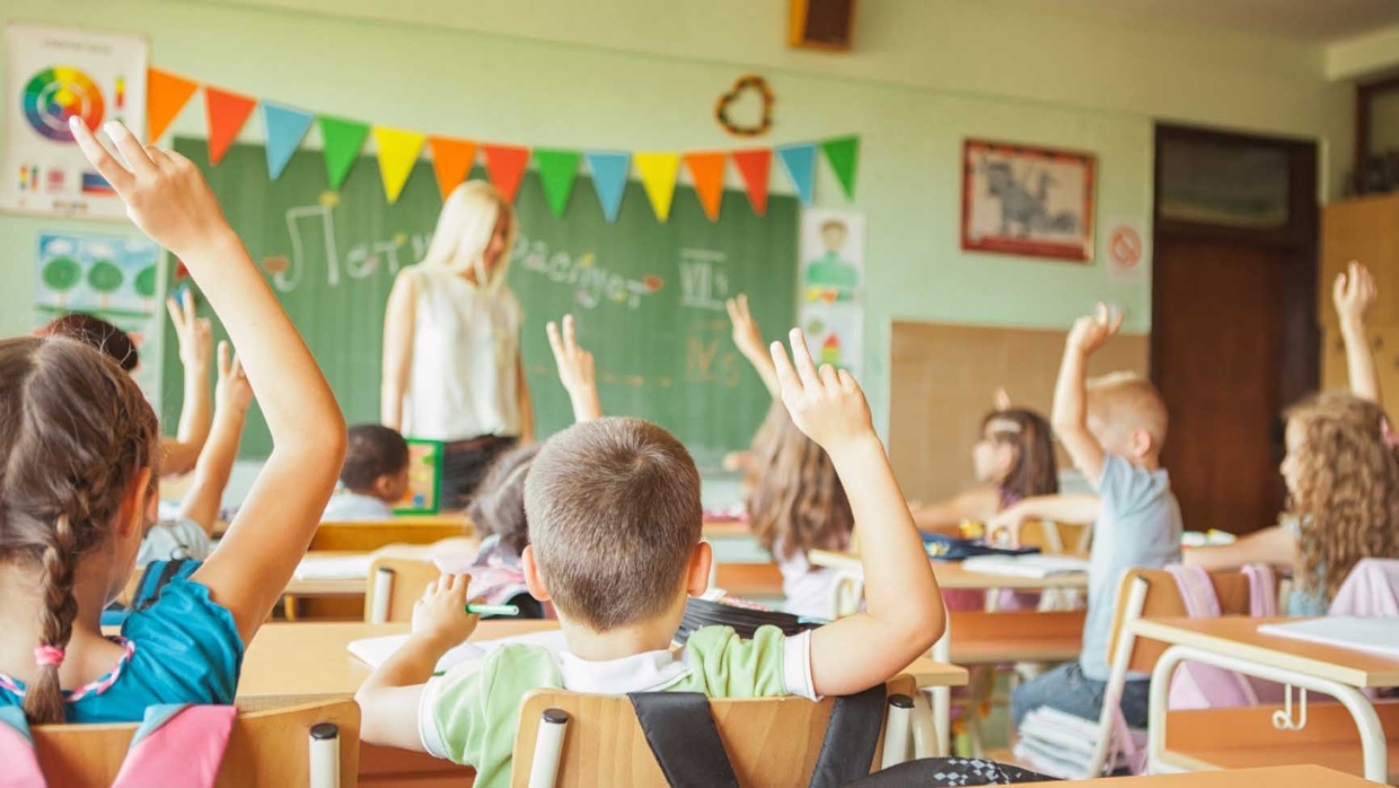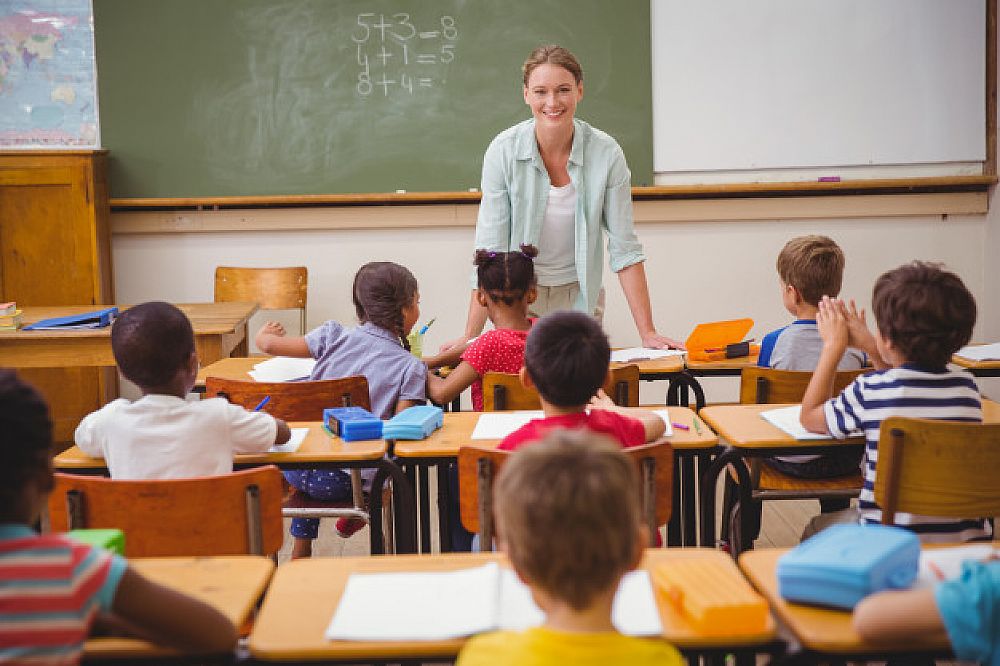Achieve Academic Success with Primary Science Tuition Singapore
Achieve Academic Success with Primary Science Tuition Singapore
Blog Article
Exploring the Different Mentor Approaches in Main Scientific Research Education And Learning Today
The landscape of key science education is progressing, with various training approaches obtaining prominence in modern classrooms. Inquiry-based knowing, hands-on experiments, and the combination of modern technology are redefining how educators involve young minds. Furthermore, collective approaches and differentiated direction are being utilized to deal with the diverse requirements of trainees, improving both involvement and understanding. As we take a look at these approaches, inquiries develop concerning their effectiveness and the implications for future educational methods. What might these shifts in strategy mean for the next generation of students?
Inquiry-Based Learning
Inquiry-Based Knowing (IBL) is an instructional method that encourages pupils to discover scientific ideas through wondering about, investigation, and hands-on experimentation. This technique emphasizes the function of pupils as active individuals in their knowing, promoting essential reasoning and problem-solving abilities. By engaging with real-world questions, trainees become determined and interested, which boosts their understanding of scientific principles.
In IBL, educators act as facilitators, directing students as they browse their inquiries instead of providing info directly. This student-centered method enables differentiation, accommodating numerous learning speeds and styles. Pupils develop skills in creating theories, making experiments, and analyzing data, which are critical for scientific proficiency.
Additionally, IBL promotes cooperation amongst pupils, urging them to share findings and concepts. This cumulative query advertises social skills and a feeling of neighborhood within the classroom. In addition, the process of query motivates durability, as students discover to welcome failing as a stepping stone towards understanding.
Hands-On Experiments
Hands-on experiments are an essential element of effective scientific research education, enhancing the concepts of inquiry-based understanding. These experiments allow students to engage directly with clinical concepts, cultivating a deeper understanding via experiential understanding. By adjusting products and observing outcomes, young learners can understand abstract theories in substantial ways.
Such tasks promote essential reasoning and analytical skills, as students hypothesize outcomes, conduct experiments, and evaluate results. This procedure encourages them to ask concerns, refine their understanding, and create a scientific frame of mind. Furthermore, hands-on experiments can be tailored to diverse learning styles, guaranteeing that all students have the possibility to involve meaningfully with the content.
Moreover, hands-on experiments commonly urge cooperation among peers, promoting teamwork and communication skills. Functioning in groups enables pupils to share ideas, go over searchings for, and pick up from one another, which boosts their general instructional experience.
Incorporating hands-on experiments into the primary science curriculum not only enriches the finding out environment however likewise grows a long-lasting passion in science. By actively taking part in their education, trainees are more likely to develop an interest for scientific inquiry that expands past the class.

Modern Technology Combination
Incorporating modern technology into main scientific research education has become increasingly essential in fostering student engagement and boosting learning results. The usage of digital devices, such as interactive simulations, virtual laboratories, and instructional software application, offers trainees with chances to discover clinical concepts in innovative means. These sources facilitate a deeper understanding of intricate topics by allowing learners to picture and adjust variables that would be unwise in a typical class setting.
In addition, innovation integration encourages customized learning experiences. Students can proceed at their own rate, reviewing difficult ideas via multimedia sources, which accommodate different learning styles. This flexibility not just supports specific development but also grows a sense of autonomy in learners.
In addition, innovation works as a bridge to real-world science, connecting trainees with present study and expert contributions. Access to clinical journals and online data sources expands students' viewpoints on scientific query and promotes essential thinking skills.
Collaborative Discovering
Joint knowing plays a crucial duty in main science education by promoting teamwork and interaction skills amongst students. This strategy urges learners to work with each other, share knowledge, and take part in analytic, which improves their understanding of clinical principles. By taking part in group activities, pupils learn to articulate their concepts, listen to varied perspectives, and negotiate remedies, all of which are necessary abilities in both real-world and scholastic contexts.

Research study shows that collective discovering can cause raised inspiration and engagement in science subjects, as students locate pleasure in common experiences (primary science tuition Singapore). In addition, this method prepares pupils for future collaborative ventures, equipping them with the skills essential for efficient teamwork in college and specialist atmospheres. Ultimately, welcoming collaborative understanding go now in primary scientific research education and visite site learning can significantly enrich the discovering experience and promote a deeper understanding of clinical inquiry
Separated Direction

Set apart instruction can show up in various ways, such as differing the material, procedures, or products of knowing. Instructors might utilize tiered assignments that give varying degrees of intricacy, allowing students to function at their particular readiness levels. Furthermore, versatile organizing strategies can help with partnership amongst pupils with various capabilities, cultivating peer knowing.
Assessment plays a critical duty in this strategy, as it educates instruction and helps teachers recognize each student's one-of-a-kind demands. Formative evaluations, such as tests and observations, can lead instructors in readjusting their strategies to boost learning results. primary science tuition Singapore. Eventually, by applying distinguished instruction in main science education, teachers can cultivate a more efficient and fair discovering atmosphere, equipping all pupils to reach their complete possibility in comprehending clinical sensations
Verdict
In summary, the diverse training techniques in main scientific research education, consisting of inquiry-based understanding, hands-on experiments, technology assimilation, joint understanding, and distinguished guideline, collectively add to an extra effective knowing atmosphere. These methods promote crucial reasoning, analytic skills, and a deeper understanding of clinical principles. By executing these approaches, instructors can create helpful and appealing classrooms that resolve the different requirements of trainees, eventually fostering a lifelong passion in science and enhancing scholastic achievement.
Inquiry-Based Discovering (IBL) is an instructional method that motivates trainees to check out clinical ideas with wondering about, investigation, and hands-on experimentation.Joint learning plays an essential function in main scientific research education by promoting team effort and interaction skills among trainees.Research indicates that joint learning can lead to increased inspiration and involvement in scientific research subjects, as pupils discover pleasure in shared experiences.In cultivating an inclusive understanding atmosphere, distinguished direction arises as a crucial technique to accommodate the diverse demands and capacities of trainees in main scientific research education and learning. page Eventually, by carrying out distinguished instruction in key scientific research education, educators can grow a much more efficient and fair understanding setting, encouraging all students to reach their complete possibility in comprehending clinical sensations.
Report this page